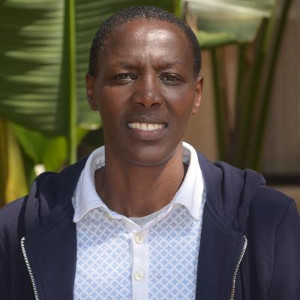Mary Njenga
Mary Njenga is a Bioenergy Research Scientist at World Agroforestry (ICRAF) based in Nairobi, Kenya. She is a visiting Lecturer at Wangari Maathai Institute for Peace and Environmental Studies, University of Nairobi and an Affiliate of the Gender Equity through Agricultural Research and Education Initiative (GEARE) at Penn State University. She is currently co-leading the Refugee-Hosting Engagement Landscape (EL) and is a critical senior member of the Circular Bioeconomy Transformative Partnerships Platform (TPP) and Climate Change Energy and Low Carbon Development research theme.
Njenga undertook a Post Doctorate in Bioenergy at ICRAF in March 2014-July 2017, a position that she won competitively. She holds a PhD in Management of Agroecosystems and Environment (2013) and an MSc in Biology of Conservation (2008) from the University of Nairobi and a BSc in Natural Resource Management (NRM) (1996) from Egerton University. Her research interest is on sustainable and efficient biomass energy production and use systems and their connections to environmental management including climate change, livelihoods and rural-urban linkages. She is also greatly interested in natural resource management in urban and rural settings, and adaptive technology development and transfer including gender integration and co-learning through transdisciplinary approaches. She joined ICRAF in 2010 as a PhD research fellow.
From November 2002-2009 Njenga was a research officer and deputised for SSA regional coordinator for Urban Harvest, a systemwide initiative of the CGIAR on urban agriculture convened by International Potato Centre (CIP). Between 1998 – October 2002 Njenga worked on community based natural resource management (CBNRM) in drylands in Laikipia with Semi -Arid Rural Development Programme of SNV and Natural Resource Monitoring, Modelling and Management, (NRM3) of Laikipia Research Programme (LRP) currently CENTRAD. In some periods between 2001-2002 she worked as a consultant for International Crops Research Institute for the Semi-Arid Tropics (ICRISAT) on rural livelihoods in South Nyanza and Bomet, Kenya.














